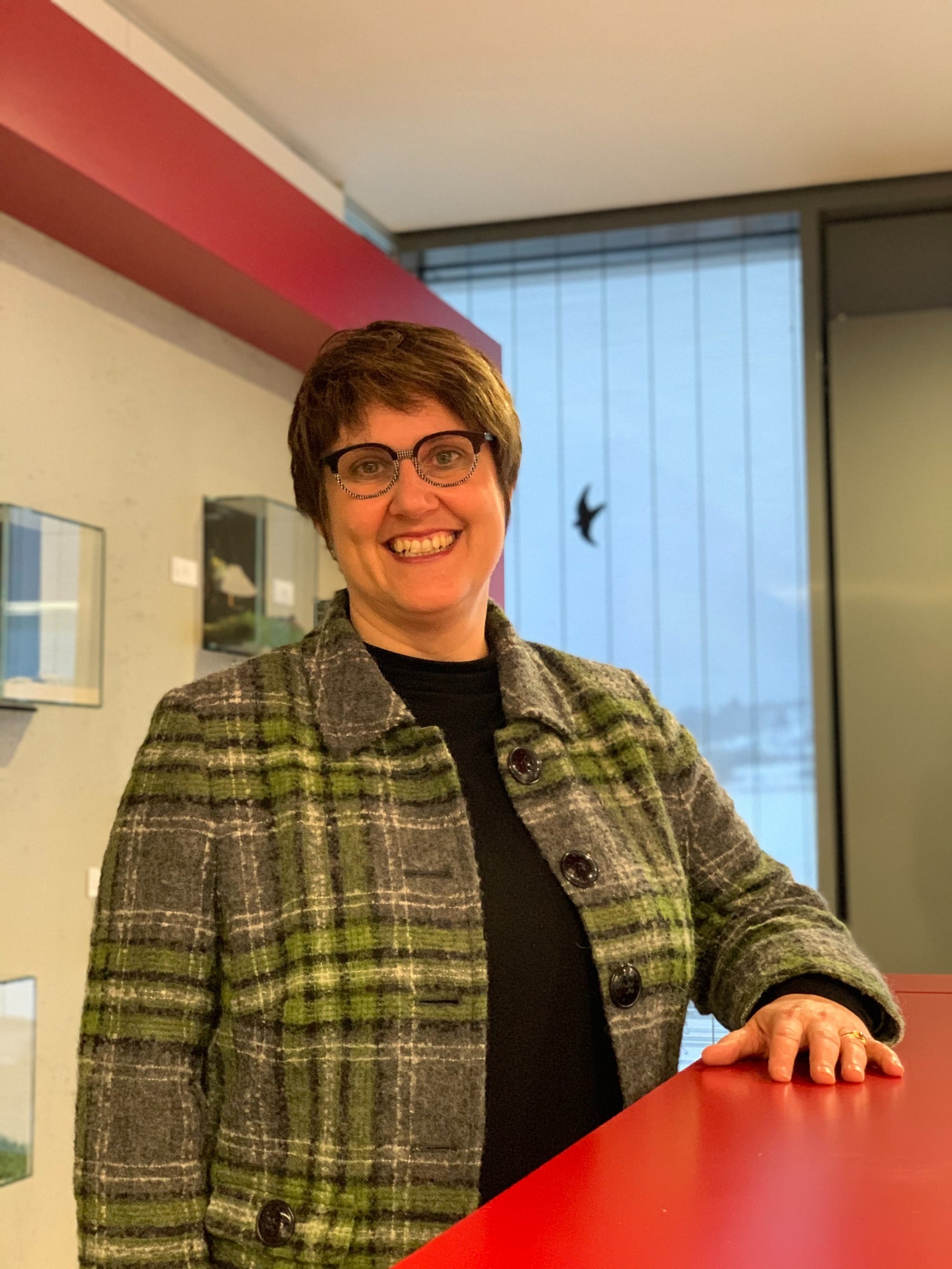Short introduction:
Tanja - our first front-line woman!
Questions and Answers from the Conversation with Tanja Hochschild
Tanja: Quite honestly? My first reaction was that I wasn’t up to it. How would I ever manage? I had three small children and was working part-time. My colleagues were much more experienced than me. How could that possibly work?
Tanja: I started thinking about how to go about it. I looked for role models, but couldn’t find any. So I sat down with a blank sheet of paper and began to consider what kind of boss the Software Development team needed. What would I be looking for in my boss? How would I deal with the fact of being away from my team for half of their working hours? And how should emergency situations, like a system breakdown, be handled while I was absent?
Tanja: I defined the key functions of a team leader, and what such functions comprise. Who could be a stand-in and what would this person need in order to act accordingly? My goal was to generate self-confident autonomy among the team members, particularly for my times of absence. So it was important to ensure transparency, constant information exchanges, and clear responsibilities. The result was a rota system with a lot of delegation. Last but not least, I had to consider how to convey the mindset that drives my decisions to my staff. That was the only way to make sure they would make everyday decisions as I would. And I was really amazed how well it worked! Not from the very beginning, but over time we got there.
Tanja: Well, it may sound a bit strange, but I took a mathematician’s approach and systematically divided the challenges into manageable packages. This led to different roles with completely different tasks and responsibilities. It has always been, and still is, vital to me that, rather than sticking to workflows and rigid rules, my team follows my intentions. Whenever I succeeded in doing that, the decisions were first-rate – and often better than if I’d have made them on my own. It has been and remains a fantastic time with a fantastic team, and with many a good companion along the way.
Nevertheless: for us women in particular, it is important that family plays a key role alongside the work situation. We have always made a joint effort of finding ways to make our everyday lives work. Thanks must also be expressed to my husband. Many a time I had a guilty conscience. Today my children are grown up and tell me everything was fine. But I had my moments of self-doubt.
Tanja: Probably as typically female. I didn’t have any role models; I was surrounded entirely by men in full-time jobs. That is now completely different in my field at Würth Elektronik. Today, my reaction bemuses me, but at the time it was a real challenge.
Tanja: That’s not an easy question. I think most people are now convinced that men and women have equal rights and can achieve equal things. But under pressure we tend to fall back into our familiar role patterns.
Tanja: Letting go and placing trust in my staff. Over the years, I have learned to do that, and I share that with my male colleagues.
Tanja: Working in mixed teams at every level of the company. Consciously adopting diversity to generate the best ideas and decision options that will make us strong for the future..
Tanja: When filling new positions, we tend to identify potential in people who are similar to ourselves. Accordingly, men will generally nominate men. That’s why our recruiting processes have to be transparent. Only when we formulate the levels of experience and skills needed, can we broaden our views and find completely different talents.
Tanja: I have found my path. I feel I am on an equal footing with my male colleagues and valued for my skills. I have been and am still part of a fantastic team and I have understood that “power” comes from doing and shaping. This is what motivates me time and again.
Today, I want to encourage young women to set out and let young men know that “WE lead together”. I am the first female member of our Executive Board, but I definitively don’t want to be the last.
